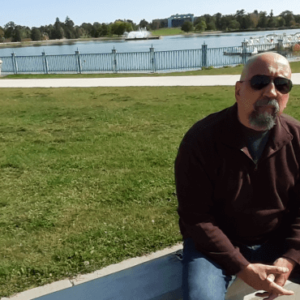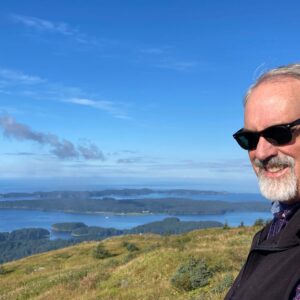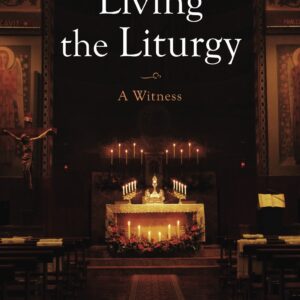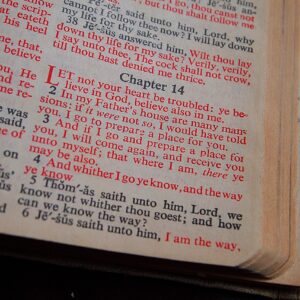We recently spoke with author Gar Anthony Haywood about his new Slant book, In Things Unseen
You’ve written nothing but crime fiction to this point in your long career. Why write a novel engaged with issues of faith now?
I was raised a Catholic and have since become an actively practicing Christian, so I’ve always looked for ways to integrate at least hints of my faith into my fiction. But a conventional crime novel only offers so many opportunities to do so organically. I finally came to a place in my life where I wanted to write a book where matters of faith were overtly discussed, one entirely devoted to the question of God’s existence and His possible intervention in our daily lives. I’m also a frustrated, wannabe author of science-fiction, and this novel allowed me to scratch that itch on some small level.
In Things Unseen revolves around a rather elaborate, God-given miracle. Do you believe in such miracles yourself?
I do. I just don’t believe something has to be of a certain magnitude to qualify. The traditionally accepted model of a miracle is something akin to the parting of the Red Sea, an event too spectacular to be missed, but I think God’s miracles come in all shapes and sizes, and that many are mistaken for simple chance. We miss seeing them for what they are every day. The miracle at the heart of In Things Unseen is both big and small, in that it affects the entire world yet is only known by four people. In other words, it’s a personal miracle on a public stage.
What gave you the basic idea for your book?
Stories about miracles are nothing particularly new, specifically those that involve resurrection. But in most cases, the miracle in question is there for the entire world to see and wrestle with. The struggle to understand is a universal one. I wondered if it wouldn’t be more interesting to examine what it might feel like to be only one of a very small group of people to be aware that a God-given miracle has occurred. What would a believer make of such knowledge, or an atheist, or an agnostic? I also wanted to play with the idea of God operating in ways not easily explained or rationalized.
In Things Unseen includes some language and situations not typically found in conventional “Christian fiction.” Do you worry that this will alienate the most likely audience for your book?
I’ve never been interested in writing anything artificially tempered or censored to make it more palatable for some readers, and I don’t think I ever will. Writing dialogue that speaks to truth, in particular, has always been a priority for me, regardless of how objectionable some have found it. I wrote In Things Unseen to be a story about real people, in the real world, being forced to question everything they thought they knew about God, and I did so in the hope that there’s a readership that’s been waiting for a novel of this kind. One that makes no excuses for its advocacy of Christian faith yet refuses to sanitize its characters or narrative just to fit in the typical Christian fiction box.
Some might consider the situation God places your central characters in to be insensitive to some, at best, and cruel at worst. That He’s using them self-indulgently for reasons that don’t actually have anything to do with them, specifically. How would you respond to that accusation?
I think God tests our faith in varied and creative ways that are sometimes harsh to the extreme and not easily understood, but He never does anything strictly for His own entertainment. There’s a purpose to everything He puts each of my characters through, and none are mere grist to the mill for Him, despite their feelings to the contrary. In the end, each has something to gain if they’re willing to accept it, but that choice is entirely their own.
Why would a non-believer want to read a novel that makes no bones about its general premise: that a loving and caring God who answers prayers does in fact exist?
Because I spend more time examining the question of God’s existence, and His willingness to involve Himself in our personal affairs, than I do on the answer. An atheist, an agnostic, and two fallen Christians play central roles in my story, and their struggle to make sense of what they’re experiencing, in the absence of an all-powerful and loving God as an explanation, drive the plot. What is one to do with a lack of faith in the supernatural when faced with incontrovertible evidence that something impossible is happening? And nobody in my novel becomes an instant convert; on the contrary, they all fight to the last to hold onto their view of the world as a place in which life has no particular meaning and God plays no part.
What did you learn about your own faith in the course of writing this book?
I learned that one question about God invariably leads to another, and that there can be many possible answers to a question consistent with my faith, or none at all. And that’s okay. It’s all right not to have all the answers. Because the proof of our faith is our endurance in the face of all we do not know, and all the reasons we are given to abandon any belief at all. I think God is perfectly happy to have us wonder, and to postulate, as long as we don’t give up.
The loss of a child is a devastating thing. What were your concerns going in about taking on such a delicate subject?
I was committed to writing something that people who have experienced this uniquely crippling form of pain would not look upon as simple-minded or, worse, exploitative. The last thing I wanted to do was make Diane and Michael Edwards—the parents of the dead child in my book—one-dimensional caricatures of a grieving mother with unshakable faith and a heartbroken, bitter father, respectively. I needed readers to see them as real people caught up in something both wonderful and terrifying at the same time. The miracle that comes as an answer to Diane’s prayers is far from the one she was expecting, and just as Michael and the non-believers in my novel must struggle to understand it, so must she.
Without giving anything away, when did you know how your story would end? Did you have this ending in mind from the beginning or…?
What I was certain about from page one was that I was not going to close with an open ending. I consider it an incredible cheat to write something that purports to be unabashedly religious, only to end on a note of “well, on second thought, maybe, sort of, perhaps.” So a closed, unambiguous ending consistent with my central premise that an all-powerful God is a real and active participant in our lives was always in the cards. I also knew early on that I wanted my ending to treat all my characters fairly, even the least sympathetic or the ones with whom I least agree, and I’m happy to say I think I accomplished that. What I didn’t know until I was well into the book was who among these people would be the hinge-point of my ending, and why. That was a late and pleasant surprise.





